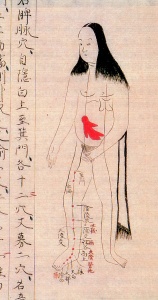In an analysis published in the most recent edition of The BMJ, Drs. Jan Blustein and Jianming Liu examine the evidence that cesarean delivery is associated with an increased risk of chronic childhood diseases like asthma, type 1 diabetes, and obesity. Their conclusion: the bulk of the evidence suggests that the association is real.
The time has come, Blustein and Liu write, for maternity care providers to include the risk of chronic childhood disease in their discussions with women considering a “non-essential” cesarean, such as when the choice is between a VBAC or repeat cesarean, or in the case of a woman choosing a medically unneccessary cesarean in lieu of vaginal birth—the so-called “maternal request” cesarean.
This topic has intrigued me for some time now. As part of my recently completed MPH program at the University of Minnesota, I wrote a paper titled, “Do Cesarean Sections Increase the Risk of Child Asthma? A Systematic Literature Review.”
In writing the paper I read and analyzed every research study on the subject since 2001. Roughly two-thirds of those studies detected a small-to-moderate association between cesarean birth and childhood asthma. (In fact, 90% of the studies detected an association between the two, but not all were statistically significant.) Most of the studies that didn’t find the association were seriously flawed—too few subjects, for example, or ignoring possible confounders, like prematurity or a history of maternal asthma. Three meta-analyses (two in 2008, one in 2014) all reached similar conclusions: cesarean section is associated with about a 20% increase in the risk of child asthma.
My paper was limited to asthma, but as described in the BMJ analysis there’s evidence that cesareans increase the risk of other chronic childhood illnesses, too–type 1 diabetes and obesity. A 2015 study by Sevelsted et. al. analyzed a cohort of two million Danish children and found small-to-moderately increased risks of juvenile rheumatoid arthitis, connective tissue disorders, inflammatory bowel diseases, immune deficiencies, and even leukemia.
Given that body of evidence, you’d think that organizations like ACOG (the American Congress of Obstetricians and Gynecologists) and the U.K.’s National Institute for Health and Care Excellence would be pushing their members to share this information with their pregnant patients. But they’re not. According to Blustein and Liu,
“…knowledge about chronic disease risks could affect decision making in non-essential caesarean. The American College of Obstetrics and Gynecology and the UK’s National Institute for Health and Care Excellence recently issued consensus statements on caesarean delivery at maternal request. Based on evidence about maternal and perinatal outcomes, both groups concluded that a pregnant woman requesting caesarean should have that choice, if she still desires it after discussion of the risks and benefits of the procedure. Importantly, neither group acknowledged the long term risk of chronic disease. [Emphasis mine.]
Critics can (and do) point to the uneven quality and designs of the studies that support such links—it’s association versus causation all over again—but that’s not entirely fair. To prove beyond doubt that cesarean birth increases the risk of child asthma, you’d have to do trials where women are randomly assigned to cesarean or vaginal birth…which, as you can imagine, is a practical and ethical non-starter. That leaves us with observational studies, which can only point out that two things seem to be related, not that they definitely are.
Ah, but there has been a randomized study of the long-term effects of cesareans versus vaginal birth in term, breech deliveries, and at least one research team has made the case that randomized trials of mode of delivery aren’t really unethical. More on those topics soon.
Finally, just to re-re-reiterate: I’m not anti-cesarean. My wife and son are alive and well today thanks to a medically necessary cesarean. But the cesarean rate today is 6 times higher than it was when I was a junior in high school (1970, if you must know…). As Blustein and Liu point out in their analysis:
“We live in a world where caesarean rates cannot be explained by compelling medical indications.”
Perhaps increased awareness of the potentially negative impact of cesareans on child health will help reverse that decades-long trend.


